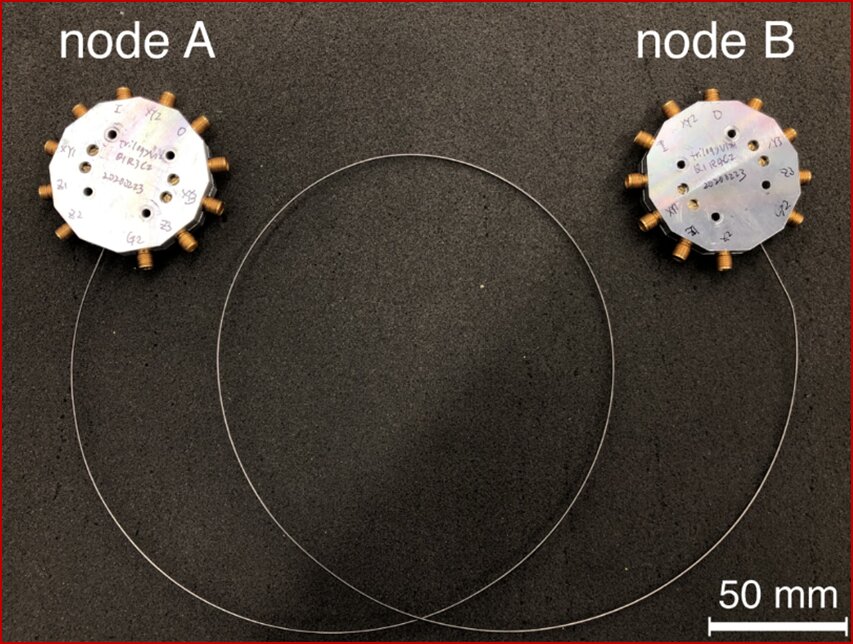Author: Christoph Ebell
SwissICT is the largest Swiss association for the ICT industry. Its recently established Policy Commission sent a letter to the Federal Council expressing the association’s concern about the possible exclusion of Switzerland from the Horizon Europe research programme in the fields of quantum and space research. The President of the Swiss Confederation, Guy Parmelin, sent a reply, and we have a first positive result. Here is a brief appreciation, context, and commentary. And a billion-frac proposal for a Swiss Quantum fund.
First of all, it is important and good to know that the Federal Council is aiming for full accession to “Horizon Europe” (HEU) – even from today’s perspective. This is also confirmed by the President of the Confederation: 6 billion have been decided for HEU and the ITER, Euratom, and Digital Europe programmes. So, there is no lack of will on the part of our executive. At the same time, however, the President warned that the EU Commission has already signalled those corresponding talks will be made dependent on “progress” in the Framework Agreement.
This is now history: Switzerland pulled out of the negotiations. As a result, the matter just became more urgent.
According to the letter from the President of the Swiss Confederation, the responsible department, i.e., the State Secretariat for Education, Research and Innovation (SERI), share swissICT’s concerns regarding the exclusion from the programme components mentioned. This is especially true in view of the fact that Switzerland is significantly involved in the development of the technologies in question or plays a leading role. It is now SERI’s task to implement “Plan B” – and I’m informed that they have one ready in anticipation of this outcome.
In the meantime, Switzerland’s efforts seem to have had an effect. In the new draft of the programme, Switzerland was apparently again involved in quantum research. Whether or not this will still be the case now after the end of the framework agreement negotiations remains to be seen. Adjustments will have to be made. Nevertheless, whatever our science diplomats have done: Good job!
What can we learn? I’m focusing on quantum technology here, because it’s more the field of swissICT – but that doesn’t mean space is any less important, in fact the two are linked. The University of Geneva, the Swiss Quantum Hub, the Paul Scherrer Institute, the ETH, IBM Research in Zurich, CSEM and several other large and small players are driving forces in our country. A white paper published last year by the Swiss Science Council (SSC) clearly shows that the quantum research strategy in Switzerland, with the national research focus QSIT and preceding NCCRs in this area, has borne fruit and Swiss groups occupy leading positions internationally. Companies such as Terra Quantum, ID Quantique, startups like Qnami, just to name a few, point to the economic growth potential. The reputation of Swiss precision technology is legendary – and a key resource for quantum systems.
Switzerland occupies a top international position in quantum research and the Swiss science system does good, even excellent work. The EU wants technological sovereignty – independence from the USA and China in strategic technologies – both economically and in terms of security policy.
Clearly, Switzerland is perfectly positioned for quantum growth. So much everyone seems to agree on, and it is also clear to our partners in the EU Commission.
This leads us to the second conclusion: Switzerland is a highly attractive partner in quantum technology and this circumstance has probably also helped our “re-entry” at least in the current draft of the “Horizon Europe” work programme, and it will be key for the arrangements post-framework agreement.
So, is everything OK?
No.
The SSC report also demonstrates that. What is missing in Switzerland (and it is an old and recurring tale in our innovation system) is well-diversified venture capital, including for early funding rounds. If we want to see quantum innovation and growth in Switzerland, we cannot afford to sit on our hands.
I therefore propose two types of action:
Establish quantum technology experimentation stations in Switzerland where start-ups, established companies, users, and researchers can build and test realistic “sandbox” scenarios and experimental ecosystems. We already have the technology for this, and the Quantum Hub model is inspiring.Establish a CHF 1 billion private quantum technology investment fund for Swiss start-ups and scale-ups, with a special focus (33%?) on early-stage funding with a high-risk profile.
The federal government can help here, perhaps not with direct funds, but possibly by absorbing part of the risk or other structural accompanying measures as part of the Covid recovery strategy. However, it is primarily the financial industry and investors who are called upon – money is available and Swiss quantum technology is an enormous investment opportunity.
My contribution can be the coordination of a fund consortium. Write to me or the swissICT office with ideas and pledges. Since this opinion piece first appeared I have had some very interesting conversations, including with Julien Levallois at the Swiss Quantum Hub in Geneva and several enterprises. We plan get together and see how we can move this forward, knowing full well that this isn’t the first attempt. We also know that the opportunities for the Quantum Nation Switzerland are too great to give up. Join us!
Original publication (revised): https://www.swissict.ch/quanten-nation-schweiz-gut-aber-da-fehlt-etwas/About the author: https://www.linkedin.com/in/christophebell/
The post Quantum Nation Switzerland – Good, but there’s something missing appeared first on Swiss Quantum Hub.



